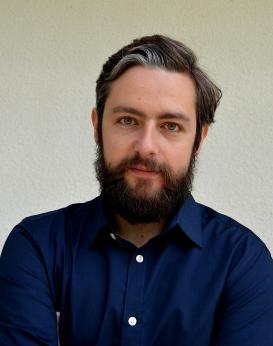
Adrian C. Pirtea (PhD, 2017) is a historian of late antique and medieval Western Asia, specializing in the intellectual and religious history of the Eastern Mediterranean, Syria, and Mesopotamia. Besides a strong interest in monasticism and the manuscript culture of Syriac, Arabic, and Byzantine Christianity, his research also focuses on the astral sciences and the circulation of scientific knowledge between the Mediterranean, the Islamicate world, and Central Asia. As a visiting fellow at the MPIWG, he studied eclipse imagery (iconography, diagrams) and the transfer of astronomical and astrological concepts linked to eclipses in the Medieval Middle East. Until recently, Adrian was a Marie Skłodowska-Curie Postdoctoral Fellow at the Institute of Byzantine and Modern Greek Studies of the University of Vienna (September 2020–August 2022). He previously worked as a postdoctoral researcher at the Berlin-Brandenburg Academy of Sciences and the Freie Universität Berlin. Publications include: “Eclipse Dragons, Seasonal Change, and the Salvation of Light: A Case of Overlapping Cosmologies in Manichaeism,” in Overlapping Cosmologies in Asia, ed. Bill Mak and Eric Huntington (Leiden: Brill, 2022), 75–97; and “Astral Ensoulment and Astral Signifiers in Sixth-Century Readings of Origen and Evagrius: Justinian’s Anathemas, Sergius of Reš’aynā, John Philoponus,” Vigiliae Christianae 75, no. 4 (2021): 483–523.
Projects
Interpreting Eclipses in Byzantium: Knowledge Transfer from India to the Eastern Mediterranean (1000–1500)
Selected Publications
Pirtea, Adrian C. (2022). “Review of: Lieu, Samuel N. C. and Glen L. Thompson (eds): The Church of the East in Central Asia and China. Turnhout: Brepols 2020.” Iran and the Caucasus 26 (4): 425–428. https://doi.org/10.1163/1573384X-20220408.
Read More
